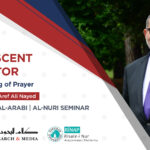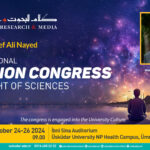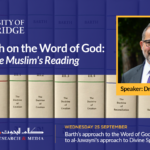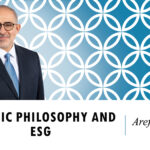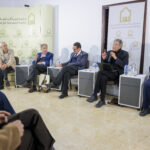Kalam Research and Media (KRM) will lead research on Artificial Understanding (AU) as part of its engagement with Artificial Intelligence (AI) and Technology.
In 2011, Kalam Research and Media (KRM) published Dr Aref Nayed’s seminal book Operational Hermeneutics: Interpretation as the Engagement of Operational Artifacts. This book was Nayed’s doctoral thesis and it uses operation analysis and dynamic system modelling techniques from the field of Engineering to solve a set of aporiae facing contemporary general hermeneutics. The technique proposed by Nayed takes texts to be operational artifacts, or human-made dynamic systems. It takes interpretative activities to be engagements of such artifacts. In these engagements texts are source dfor operations. The fruitfulness of Operational Hermeneutics is demonstrated through the resolution of a set of related problems which presently hinder advancement in Hermeneutics. Operational Hermeneutics offers a manner in which to take into account the obvious diversity of texts and interpretative activities, authorial intentions, and methodological concerns.
KRM’s Programme on Artificial Understanding (AU)
Artificial Intelligence (AI) is the machine-displayed intelligence that simulates human behaviour or thinking and can be trained to solve specific problems. AI is a combination of Machine Learning techniques and Deep Learning. Types of artificial intelligence models are trained using vast volumes of data have the ability to make intelligent decisions.
AI has made spectacular successes recently, and there are thousands of institutions, companies, and researchers developing it further. At KRM we have taken a different approach to the general thrust of the field of AI, based on the earlier work by Dr Aref Nayed on Operational Hermeneutics.
Instead of typical AI, KRM has initiated a research programme in a cutting-edge area we call “Artificial Understanding” (or AU). The ultimate aims of Artificial Understanding (AU) are three:
(1) To truly understand operational artifacts (machines).
(2) To build operational artifacts (machines) that can understand.
(3) To build tools that support humans as they strive to understand each other.
KRM’s approach starts from its foundational team’s expertise in the areas of Philosophy, Dialogics, Logics of Inquiry, Critical Thinking, Hermeneutics, Semiotics, Pragmatics, Scriptural Reasoning, Phenomenology, and Artificial Intelligence (AI). KRM is therefore building an in-house team that fully engages with insights from Biological Engineering, Artificial Life, Automata Theory, Complexity Theory, Cybernetics, Dynamic Systems Theory, Networking Theory, Information Theory, Deep Learning, Machine Learning, and Natural Language Processing (NLP). KRM will also delve deep into the pressing question of Ethics of AI, on the pressing concerns worldwide on the rapid development of AI and its possible implications, and developing set of guidelines that advise on the design and outcomes of artificial intelligence. The talk of teaching ethics to a machine that is more intelligent than we are, in a wide range of fields, is an daunting task with serious ramifications.
As it develops this excitingly novel research program, KRM’s Team is engaging with institutions working in all of the mentioned areas, with the support of tools from world-leading companies such as Amazon Web Services (AWS), Oracle, and IBM. It has also developed partnerships with the following institutions:
• The Vector Institute for Artificial Intelligence (Canada)
• The Centre for Advancing Responsible and Ethical Artificial Intelligence (CARE-AI), University of Guelph (Canada)
• Canadian Institute for Advanced Research (CIFAR) (Canada)
• Intus Smartcities (Canada) • Canadian Utilities Technologies Infrastructure (CUTI) (Canada)
• Cambridge Interfaith Programme, University of Cambridge (UK)
• Peace Tech Initiative, Rose Castle Foundation (UK)
• The Cambridge Network and the Cambridge Science Park (UK)
• A.Virtual (South Korea)
• Università Cattolica dell Sacro Cuore (Italy)
• Kroc Institute for International Peace Studies, University of Notre Dame (USA)
• Centre for World Religions, Diplomacy, and Conflict Resolution (CRDC), George Mason University (USA)


